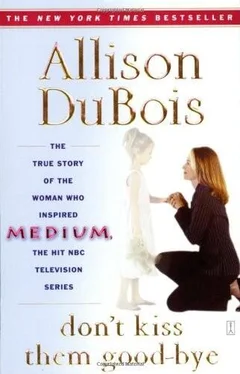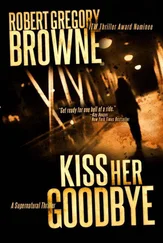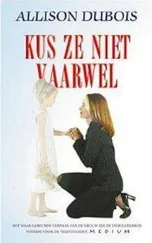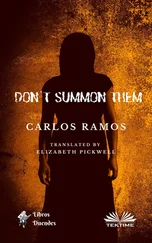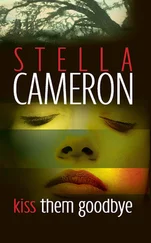The family wanted to know why Steve hadn’t used his cell phone to call them.
“He couldn’t use it where he was. It wouldn’t work,” I told them.
They wanted to know the obvious: Why were their relatives missing?
I told them that the vehicle the couple was driving was not capable of going where Steve had wanted it to go. It was stuck in mud or something thick. Also, Steve had felt pretty comfortable with his navigating ability, and that had something to do with his making a driving error.
Their daughter wanted to know if her dad would leave her mother and grandmother to go for help, and I said yes. The friends and family of the missing group had mixed feelings about that. They found it hard to believe that he’d ever leave his wife. I told them that he had no other choice; he would do it to save them. Then I gave the general location of the missing trio, saying that they were farther away than people thought, and I described a lake and picnic area nearby.
The missing couple’s daughter was able to retain some hope that indeed her parents were alive. Catherine insisted that I call the detective on the case and give him my input, which I did. Unfortunately, the police didn’t seem to think my information was valid, and they did not want my help.
The three dehydrated people were rescued four days after their disappearance. Steve had been trying to take a shortcut and his 4X2 got stuck in the mud. He couldn’t use his cell phone because of the mountains. Finally, on the fourth day, he left Kathy and his mother-in-law to attempt to climb a nearby mountain from the top of which he hoped to obtain phone reception. He was gone for hours, but was successful in placing a call for help. A local news helicopter arrived to assist them.
Steve and Kathy celebrated their twenty-fifth wedding anniversary later that week in Hawaii. When they returned, they had a party for all of those who helped out during their disappearance. I was not able to attend, but Catherine did, and she said it was a wonderful evening. The family made a scrapbook with all of the news clippings from their disappearance, including a page designated for the psychics who worked on their case. It just doesn’t get any better than that!
The Cerqua story will always remind me that missing persons can actually be alive and well. I live for cases like theirs! Even though my information didn’t actually save them, it provided great comfort to their loved ones during their absence. I refer to this story whenever I need to remember a happy ending.
Head Tapping
Profiling is not just about dealing with mysteries and criminals. Sometimes it involves probing the minds of people who are involved in situations that are not matters of life and death. I was once useful in helping a client locate millions of dollars in inheritance money. I did this through a phone reading, without being given any information: I brought through the sitter’s deceased father, who said his daughter had inheritance money coming and told me where it was. I provided her with the country where the money could be found and told her whom she should contact for proof of its existence. She located the money and the person who had the proof.
I also receive many calls from people trying to get information about loved ones who are up to something. There’s nothing like tapping into a person’s head and then having to tell my client that I see his wife near a bar in a parking lot meeting another man. I almost always receive word back. Without fail, my client calls back to confirm my information and then adds that this isn’t the first time the spouse had strayed.
Sometimes a husband will think his wife has been abducted when in fact she has run off. It’s a little distracting to get a distress call, only to find that she is not a victim, that the husband knew that it was a possibility that she was out carousing. I prefer to be left out of these situations.
If I tap into a person’s head when he or she is drunk or on drugs, I can feel the dulling, slowing effects myself. I also feel their emotions. Head tapping is interesting, because it allows me to really get into someone’s thoughts. However, children who have been brutally traumatized are usually inaccessible to me. I have to get my information from the perpetrator’s head, not the child’s. The child was usually too confused to know what was really happening, so it’s more difficult to read.
I am also used for jury selection in rape/homicide cases, in order to obtain the sentence the prosecution wants. I only work with prosecution teams I am familiar with. Also, I only work cases where there is no doubt the defendant committed the crime. I want the information I receive to be backed up by DNA evidence. I do not take what I do lightly.
I have been asked if that’s stacking the deck against the defense. First of all, I hope so. Second, I am only choosing from a pool of potential jurors already selected by our justice system. Finally, I have to say that defense attorneys would try to discredit people like me anyway. If I can’t do what I say I can do, if they are right in saying that my information is unreliable, then they have nothing to worry about. Besides, the prosecutors ultimately go with their own final decisions.
No Other Road to Walk
One case that I took more personally than most was the death of a witness who was going to be testifying in court the next day. She was also a mother, and her children were in the house when she was murdered in cold blood.
Being a mother, I gave this one everything I had to give; it consumed me. The defendant had no remorse. What most people didn’t see was that the victim herself was there in the courtroom every day of that trial. On the day of closing arguments, I walked into the courtroom while fumbling through my oversized purse in search of my lipstick. Just then, I heard a soft female voice say, “That’s my boy!”
I glanced to my left and the murder victim was sitting beside me, smiling. I looked up and saw the back of a young man’s head. Just then the prosecutor walked up with a young man he introduced as the victim’s son Neil, and we shook hands.
This was another one of the defendant’s casualties, one who would become a strong and significant man in spite of the thug who killed his mother. In my thoughts I heard, “You’re here for him. You fight for him!”
I gave Neil a ride home that day. He opened his wallet to show me his mom’s picture, one of many family pictures in his wallet. That said it all.
I gave him my phone number and told him to call me if he ever needed anything at all. He said thanks and we parted ways. He never knew the extent of what I do. It wasn’t necessary. All he needed to know was that I was a jury consultant who cared about his mom’s case.
Meanwhile, the lead prosecutor was growing very concerned about jurors having to be excused and replaced at the last minute. On Saturday I attended a party at the prosecutor’s house. She was frazzled, wanting to know when the jury would come back with the sentence and what that sentence would be.
“Boy, they don’t ask for much, do they?” I thought sarcastically. I shot back at her: “Tuesday at three the jury will come back in favor of the prosecution’s plea for the death penalty.”
She smiled and said she felt a little better, but she still had that huge knot in her stomach. After all, a lot was riding on her ability.
The case had begun to take a toll on my health, and I caught a cold over the weekend. I found comfort in getting sauced on cold medicine. Tuesday morning rolled around and my weary eyes opened to look at the clock. It was 9:30; the jury had just gone into deliberation. I was sick to my stomach, but it wasn’t from my cold. I felt the weight of the prosecution on my shoulders, as well as that of the victim and her children. I wanted to bring them some justice and let those kids know that their mom mattered.
Читать дальше
